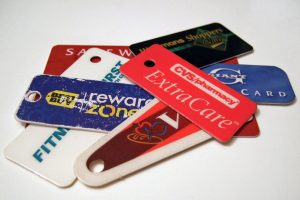
An immediate discount, free coffee or more loyalty points. Loyalty cards are still very popular with customers – but only few of them know that, in exchange for small discount or free coffee, they are giving their privacy away.
Well, let’s be honest. We all have them and, usually, we’re not thinking about it too much. Because… hey, did anybody just say the word „discount“? In the U.S., several major supermarket even require the cards in order for customers to receive the advertised loyalty price.
But everything has its price. Let’s have a look on how exactly do retailers use the data provided by the cards in your wallet…
-
Marketing
Have you been ever wondering why are all those shops and marketers so familiar with your preferencies as a customer? Look into your wallet, because the reason is right there. It is well-known that companies use loyalty card data to understand shoppers’ habits. And then shape it by targeting advertising and organising products to encourage more.
–> Here’s how strangers get your number. Don’t do these 5 common mistakes
-
Tracking your movement
Yes, you read it right. Whenever you use your reward card at a shop (even when shopping online), companies can track your purchases (and your location as well). All these data are, of course, connected to your name, e-mail and other information companies have thanks to your card.
-
Sharing your data with other parties
Sure, all organisations processing personal data must comply with data protection law. But they are also allowed to share customer’s information with companies within the same group and somewhere even with their retail partners.
How to not be an easy target
So, here’s a question: why are all these information about you so valuable for companies (and so dangerous, when it comes to your own good)? It’s because, thanks to loyalty cards, companies know you better than you know yourself. And they can target you with really „personal“ offers – so you cannot say „no“. And you buy things you didn’t even know you need (or want).
How to protect yourself? Don’t fall for this „loyalty card business“. Since a discount is never for free. And if you want to avoid annoying marketing offers (at least when it comes to your phone), get a Should I Answer app. It will deal with it for you.